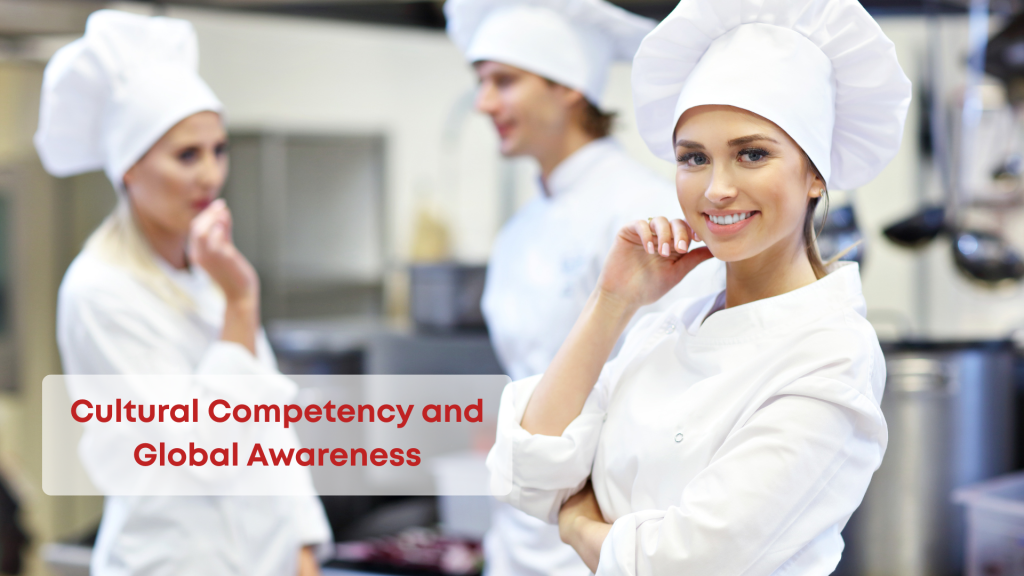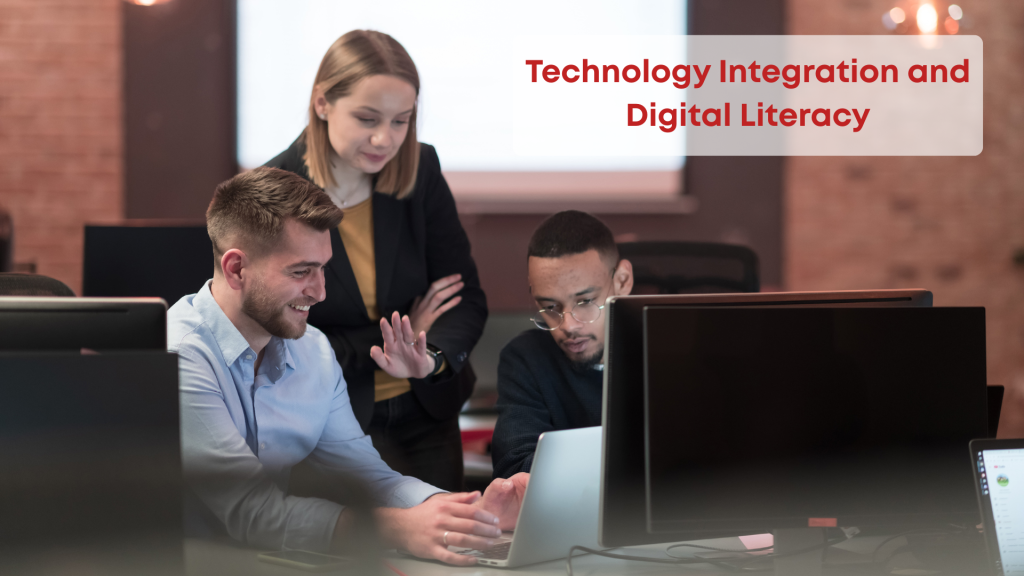The conference manager at Niagara-on-the-Lake’s premier resort glances at her watch—11:47 PM—as she coordinates the final details of tomorrow’s 500-person corporate event while simultaneously resolving a kitchen emergency, managing a guest complaint in three languages, and updating the Property Management System to accommodate last-minute room changes. This seamless orchestration of diverse competencies exemplifies the sophisticated skill set that defines excellence in modern Hospitality, where professionals must master everything from revenue management analytics to cultural sensitivity while delivering exceptional guest experiences across increasingly complex tourism sectors. Mastering Hospitality and Tourism Skills is essential for success in this dynamic and fast-paced industry.
Essential Communication and Customer Service Excellence
Exceptional communication skills form the foundation of successful Hospitality careers, enabling professionals to create memorable guest experiences while managing diverse stakeholder relationships. Modern Hospitality industry professionals must demonstrate proficiency in multiple languages, cultural awareness, and adaptive communication styles that resonate with guests from diverse backgrounds. This includes mastering both verbal and written communication for front office operations, guest services interactions, and interdepartmental coordination across complex hotel operations.
Customer service excellence extends beyond basic hospitality to encompass sophisticated problem-solving capabilities, emotional intelligence, and the ability to anticipate guest needs before they arise. Professionals in premier restaurants, luxury resorts, and boutique hotel environments must understand the nuances of personalized service delivery while maintaining operational efficiency. This includes developing expertise in dining room service protocols, guest services standards, and service recovery techniques that transform challenging situations into opportunities for guest loyalty. Mastering Hospitality and Tourism Skills is key to achieving this level of service excellence in the industry.
Advanced communication competencies include understanding diversity and inclusion principles that ensure welcoming environments for all guests. This involves developing cultural competency that reflects Canada’s multicultural society while respecting Indigenous Culture and promoting reconciliation through authentic hospitality experiences. Professionals must also master digital communication platforms, social media engagement strategies, and online reputation management that supports modern marketing and guest relations initiatives.
Core Communication Competencies:
- Multilingual communication abilities for diverse guest populations
- Advanced customer service and service recovery techniques
- Cultural competency and diversity and inclusion awareness
- Digital communication and social media engagement skills
- Indigenous Culture understanding and reconciliation principles
- Professional front office operations and guest services protocols
Technical and Operational Management Skills

Modern Hospitality operations require comprehensive understanding of sophisticated technology systems that support efficient service delivery and optimal guest experiences. Professionals must master hotel management software, Property Management Systems, and specialized applications used across Rooms divisions, Food and beverage operations, and event management functions. This technical proficiency enables effective revenue management, inventory control, and operational optimization that drives profitability while maintaining service quality.
Hotel Operations Management expertise encompasses understanding complex operational workflows across diverse departments including housekeeping, food service, entertainment, and accommodation services. Professionals must develop competency in kitchen production techniques, beverage management systems, and specialized operational procedures that ensure consistent quality delivery. This includes understanding safety and security protocols, Workplace Hazardous Materials Information System requirements, and emergency response procedures that protect guests and staff.
Advanced operational skills include expertise in Event Planning logistics, conference coordination, and special event functions that require seamless integration of multiple service elements. This encompasses understanding Festival and event planning principles, vendor management, and logistics coordination that supports successful execution of complex event programs. Professionals must also develop proficiency in risk management principles and contingency planning that ensures successful outcomes regardless of unforeseen challenges. Mastering Hospitality and Tourism Skills is essential for effectively managing these intricate tasks and delivering exceptional event experiences.
Technical Competencies Include:
- Hotel management software and Property Management System proficiency
- Revenue management analytics and pricing optimization strategies
- Food and beverage service operations and kitchen production techniques
- Event management systems and logistics coordination
- Safety and security protocols and emergency response procedures
- Housekeeping operations and quality assurance standards
- Risk management principles and contingency planning capabilities
Financial Management and Business Acumen
Successful Hospitality management requires sophisticated understanding of financial management principles that support sustainable business operations and profitable growth. Professionals must develop competency in accounting principles, budget development, and financial reports analysis that inform strategic decision-making. This includes understanding revenue management strategies, cost control techniques, and performance metrics that optimize profitability across diverse tourism sectors.
Restaurant Management and Food and Beverage Management roles require specialized financial skills including menu engineering, food cost analysis, and beverage inventory management that maximize profitability while maintaining quality standards. Professionals must understand pricing strategies, portion control systems, and waste reduction techniques that support sustainable operations. This expertise proves essential for roles in premier restaurants, hotel dining operations, and specialized food service environments.
Advanced business skills include understanding marketing and sales strategies that drive revenue growth and market expansion. This encompasses digital marketing competencies, brand management principles, and customer relationship management that supports long-term business success. Professionals must also develop expertise in human resource management, staff scheduling, and performance management that ensures operational excellence while maintaining positive workplace culture.
Cultural Competency and Global Awareness

The international tourism landscape requires professionals who understand diverse cultural perspectives and can create inclusive experiences for guests from around the world. This includes developing knowledge of global tourism trends, international business practices, and cultural sensitivities that influence guest expectations and service preferences. Professionals working in destinations like Calgary and Nova Scotia must understand both domestic and international market dynamics that shape the tourism industry.
Indigenous Culture understanding represents an increasingly important competency as Canada’s Hospitality industry embraces reconciliation and authentic cultural experiences. This includes learning about Indigenous Language, traditional practices, and cultural protocols that support respectful engagement and meaningful cultural exchange. Indigenous Programs and Indigenous Studies components in hospitality programs provide essential knowledge for creating authentic and respectful guest experiences. Mastering Hospitality and Tourism Skills is crucial for professionals to foster deeper cultural understanding and enhance the guest experience in an inclusive environment.
Global competency also encompasses understanding international applicants perspectives, visa and immigration considerations, and the unique needs of international guests and workers. This cultural awareness proves essential for professionals working in diverse environments including cruise lines, international hotel chains, and destinations that serve significant international tourism markets.
Cultural Competency Areas:
- Global tourism trends and international market understanding
- Indigenous Culture awareness and reconciliation principles
- Cross-cultural communication and sensitivity training
- Diversity and inclusion implementation in Hospitality operations
- International business practices and protocol understanding
- Language skills development for key market segments
Event Management and Planning Expertise
Event Planning skills represent crucial competencies for Hospitality professionals across diverse career paths, from hotel event planning coordinators to independent event planners serving corporate and social markets. This expertise encompasses understanding client needs assessment, vendor coordination, timeline development, and budget management that ensures successful event execution. Professionals must develop proficiency in event management software, logistics planning, and contingency management that addresses the complex requirements of modern events.
Festival and event planning requires specialized knowledge of large-scale event logistics, permit requirements, and community engagement strategies. This includes understanding crowd management principles, vendor coordination, and safety and security protocols that ensure successful public events. Professionals working in destinations known for major festivals and events must understand both operational and marketing aspects that contribute to successful event outcomes.
Corporate event management expertise includes understanding business objectives, ROI measurement, and professional networking facilitation that supports client goals. This encompasses conference manager responsibilities, trade show coordination, and corporate entertainment planning that requires sophisticated understanding of business culture and professional protocols. Advanced practitioners also develop expertise in virtual and hybrid event delivery that reflects current technology trends and client preferences.
Technology Integration and Digital Literacy

Modern Hospitality professionals must master diverse technology platforms that support efficient operations and enhanced guest experiences. This includes proficiency with Microsoft Windows environments, cloud-based applications, and mobile technology that enables seamless service delivery. Understanding Broadband capabilities, network systems, and digital infrastructure requirements proves essential for troubleshooting technology issues and optimizing system performance.
Hotel management software expertise encompasses reservation systems, guest preference tracking, and automated communication platforms that personalize guest interactions. Professionals must understand data analytics, reporting systems, and performance measurement tools that inform strategic decision-making. This technical competency enables effective revenue management, operational optimization, and guest satisfaction improvement through data-driven approaches.
Social media proficiency and digital marketing skills enable professionals to engage with guests, manage online reputation, and promote services through contemporary channels. This includes understanding content creation, engagement strategies, and online review management that supports brand building and customer loyalty. Advanced practitioners develop expertise in digital payment systems, contactless service delivery, and emerging technologies that shape the future of Hospitality service delivery.
Why Choose Central College, Mississauga?
Central College, Mississauga provides comprehensive Hospitality and Tourism Management education that combines theoretical knowledge with extensive practical experience across diverse industry sectors. Our program benefits from strategic industry partnerships with leading hotel, restaurant, and event organizations throughout the Greater Toronto Area, ensuring students gain valuable real-world experience through co-op work experience and field education placements. These partnerships provide direct pathways to employment while building professional networks that support long-term career advancement.
Our comprehensive curriculum covers all essential competency areas including Hotel and Restaurant Management, Event Planning, Tourism Management, and specialized topics such as Indigenous Wellness and Tourism Entrepreneurship. Students develop expertise through hands-on experience in our state-of-the-art food lab, Hospitality Simulation environments, and real-world project opportunities. The program structure includes a common first-year foundation followed by specialized tracks that align with individual career goals and interests. Mastering Hospitality and Tourism Skills is key to success in these diverse and evolving fields.
Our experienced faculty brings extensive industry experience from diverse Hospitality sectors, ensuring students receive current, relevant instruction that reflects best practices and emerging trends. Small class sizes enable personalized attention and mentoring relationships that support academic success and professional development. The college’s commitment to experiential opportunities includes field trips, case competitions, and guest speaker programs that expose students to industry leaders and current practices.
Central College Program Advantages:
- Comprehensive Ontario College Diploma in Hospitality and Tourism Management
- Extensive co-op program and field education placements with industry partners
- Modern facilities including food lab and Hospitality Simulation environments
- Specialized tracks including Event Planning and Restaurant Management
- Indigenous Programs integration and cultural competency development
- Scholarships and awards opportunities for qualified students
- Comprehensive Workplace certifications including First Aid and food safety

The college’s strategic location in Mississauga provides convenient access to major Hospitality employers, tourism attractions, and professional development opportunities throughout the region. Students benefit from proximity to Toronto’s diverse restaurant scene, major hotel properties, and international business centers that provide internship and employment opportunities. Our Entry Advising service and comprehensive student support ensure successful program completion and career placement.
Flexible learning options accommodate diverse student needs through innovative delivery methods that maintain educational quality while providing accessibility. The college’s commitment to technology integration ensures students develop proficiency with current industry systems and emerging technologies. Graduate employment rates consistently exceed industry averages, demonstrating the effectiveness of our comprehensive approach to Hospitality education and career preparation. Mastering Hospitality and Tourism Skills is integral to the high success rate of our graduates in securing top industry positions.
Conclusion
Excellence in Hospitality requires mastery of diverse competencies spanning communication, technical skills, financial acumen, cultural awareness, and operational expertise. Central College’s comprehensive program provides the ideal foundation for developing these essential capabilities while gaining practical experience through industry partnerships and experiential opportunities. Our graduates enter the dynamic Hospitality industry equipped with the knowledge, skills, and professional networks necessary to excel in diverse career paths while contributing meaningfully to Canada’s growing tourism and Hospitality sectors.
